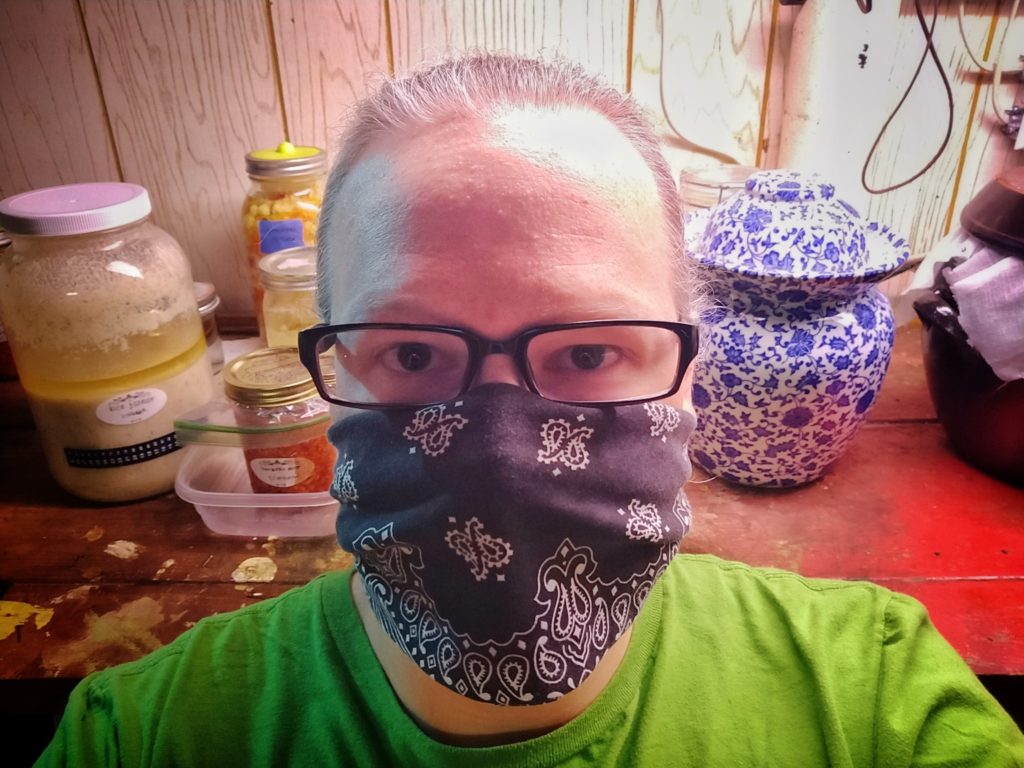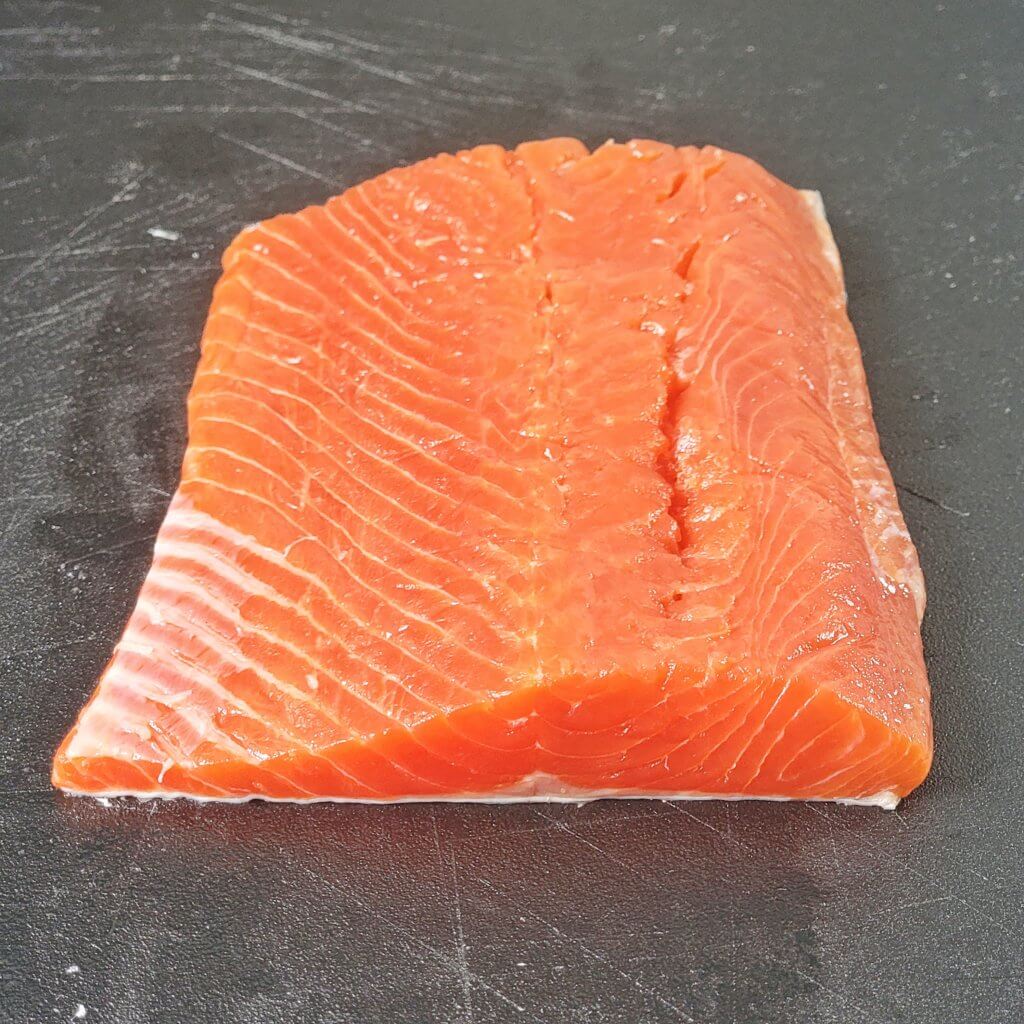On the Wearing of Masks

As a fermentation enthusiast, I feel that I have a duty to add my voice to the chorus of so many others begging and pleading with our friends, neighbors, and relatives to wear a mask when out in public during a pandemic. No, I’m no scientist or epidemiologist, but I think considering things from the perspective of how and why fermentation works makes for a decent case to wear a mask.
As fermenters, we have first-hand experience with the power of microbes. They can transform our food into something delicious or disgusting in a matter of days, and we can’t see them or otherwise detect their presence in any reasonable home kitchen. But we know they are there, and we know how to use them, suppress them, or otherwise manipulate them into doing what we want. And still we must humbly recognize that we don’t fully understand everything that is happening in that jar, only that we’ve done it before and it was delicious.
Regardless of how much we know about those microbes, we do things a certain way to guarantee (as much as we can) that our projects are a success. You can’t just throw things into a jar for 3 months and expect to enjoy what comes out the other end—in fact, that can be downright dangerous. A mind-boggling number of different bacteria exist on any given surface, including on the foods we ferment, and as many or more mold spores and other air-borne microbes are all around us. There are any number of things that we employ or look for in different contexts to ensure or test for success and safety, from cleanliness and sterilization to salt ratios and pH.
The point is, when it comes to invisible things that can spoil food or even have the potential to kill, we fermenters take precautions. This isn’t about fear-mongering or an agenda. We know that COVID-19 is much more contagious than, say the flu, and is also many times deadlier. In about 6 months, the this coronavirus has killed over 500,000 people world-wide (likely under-reported) whereas the flu is estimated to kill between 290,000-650,000 per year—so it’s already surpassed the average flu season and is on track to kill many more in the remaining 6 months of the year. As of this writing, the US has recorded over 120,000 deaths, and we are still studying the long term effects in people who have recovered. That’s about a 2x-6x higher death rate than the estimated death rate of this past flu season of 24,000-62,000 deaths.
I only make comparisons with the flu here because many have been arguing against wearing masks because “it’s just another flu”, amongst many other bogus claims. But we know the flu. We have ways of tracking its many variations and we know how much annual vaccines reduce hospitalizations and deaths. And we know that the measures that governments took to reduce the spread of COVID-19 practically stopped this year’s flu season in its tracks. Oh, and, by the way, you can absolutely contract COVID-19 and the flu simultaneously, which is a serious concern facing us for this fall and the next flu season.
When we ferment, we’re controlling the outcome by way of a millennia of cumulative experience and science. We prevent, say, botulism—an illness caused by something we cannot see, smell, or taste—because we know it exists and we know how to prevent it. Not accounting for the possibility of botulism when canning at home is either ignorance or willful neglect, neither of which is a good look.
We in the US could be almost business-as-usual while also reducing transmissions and deaths if we all wore masks. Face masks work to prevent asymptomatic spread when social distancing is not practical, just like a pH lower than 4.6 prevents botulism. And let’s be clear: wearing a mask isn’t as much about protecting yourself as it is about protecting those around you. When you refuse to wear a mask, you are telling everyone you encounter that you don’t care if you have the virus and spread it to them. We wouldn’t need our state governments to issue business shutdowns and stay-at-home orders if the spread of the disease was under control, which it is absolutely not*. There is still no vaccine for COVID-19, and there are still no proven therapeutic treatments.
Outright refusal to wear a mask is a naive attempt to pretend that this pandemic isn’t a big deal, that it’s “just as bad as the flu”, that “those people were going to die anyways”. I’ve heard these things actually said out loud. Just because death is inevitable for all of us and the rate of deaths from the coronavirus is just a small fraction of that doesn’t mean we shouldn’t care or attempt to address it. We are humans generally enjoying a quality of life inconceivable by our ancestors because of the social structures and institutions that we have built, which includes a generalized care for others.
We ferment foods because we like the taste, but also because it’s a way to preserve that food, and by extension, preserve our life and the lives of those we love. We are used to taking precautions for microbes because we know the result we want, and we want to prevent harm as a direct result of our actions. In the case of the COVID-19 pandemic, we should also know the result that we want and act accordingly—by wearing a mask.
Updated July 11 with new COVID19 cases by country graph.
